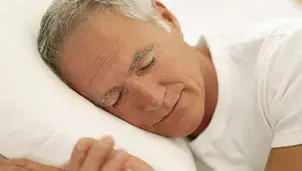Will fireworks affect my lung condition?
Fireworks and bonfires can increase air pollution levels, especially during big firework celebrations like Bonfire Night, Diwali or New Year.
Fireworks are made using a mix of chemicals. When they are set off, they release harmful pollutants that can damage your lungs, including sulphur dioxide, nitrogen dioxide and particulate matter.
Breathing in smoke and chemicals like this can irritate your airways. This means that fireworks could worsen the symptoms of your lung condition. They could also cause an asthma attack or flare up of your lung condition.
Read more about air pollution and your lungs.
Check air pollution levels
The air can stay polluted for several hours after fireworks displays or a bonfire, especially if there is no wind to blow the pollution away. Use an app or website like Defra, BBC Weather, or the Met Office to check your local air pollution levels and stay safe.
Stay well around fireworks
It’s best to avoid being near fireworks if you have a lung condition, but we know that this is not always possible. You can stay safe by:
Standing back
Stand away from fireworks or bonfires if you're going to a big display. Check which direction the wind is blowing in, so you can avoid breathing in too much smoke.
Preparing for an emergency
If you use a reliever inhaler (usually blue), always have it with you. This means you can use it quickly if your symptoms get worse. Make sure the people you’re with know what to do if your symptoms suddenly get worse too.
If you use a self-management plan, you could keep a copy with you. We have an asthma action plan, a MART action plan, a COPD self-management plan and a pulmonary fibrosis self-management plan available for free.
Wearing a mask
Some people with lung conditions tell us that they find face masks helpful when they are exposed to air pollution.
Wearing a mask is not included in Defra's advice for dealing with air pollution. Masks with active charcoal filters can help filter out nitrogen dioxide, but these don’t keep out the smallest particulate matter, which is most damaging to your health.
If you’re celebrating in cold weather, wearing a mask or loosely wrapping a scarf around your nose and mouth helps to warm up the air you’re breathing in. This is important because cold air can also worsen the symptoms of your lung condition. Read more practical advice about staying well in winter.
Consider staying indoors
It may be best to stay indoors if fireworks have brought on your lung condition symptoms before, particularly if the air quality is already poor. You can check the air quality in your local area on the DEFRA website.
Other ways to celebrate
There are a lot of ways you can celebrate special occasions without being around fireworks.
You could try:
- Blowing bubbles or throwing paper confetti.
- Watching a fireworks display from indoors.
- Decorating with lights, candles and other colourful decorations.
- Going to a drone or laser show instead. Some places in the UK are starting to put these on instead of traditional fireworks displays. There could be one in your local area.
- Watching a fireworks display on TV or online. There are a lot of video compilations available that could make it feel like you’re at a show.

Get support
Call or WhatsApp our Helpline for support with your condition. Get advice on your medicines, symptoms or travelling with a lung condition, or just call us to say hello.






